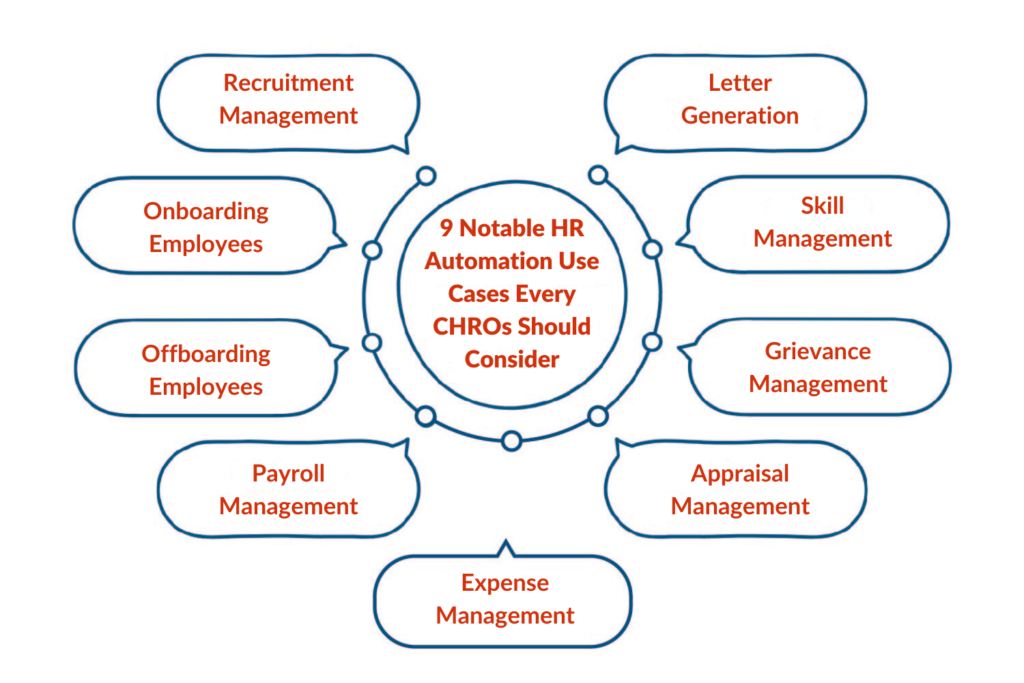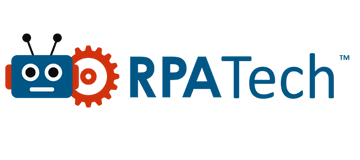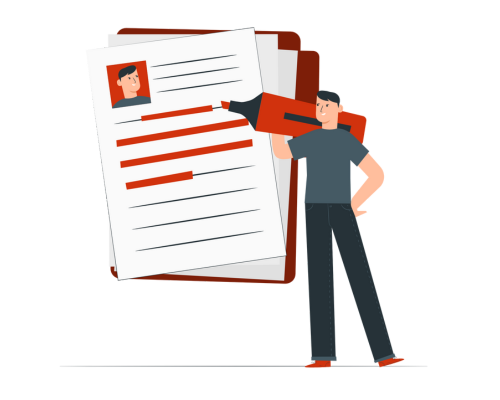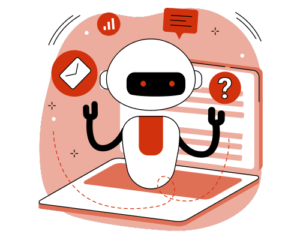With the HR landscape constantly evolving, efficiency is no longer a “nice to have,” but a necessity. Chief Human Resources Officers (CHROs) face increasing pressure to streamline processes while improving employee experiences. This is where AI-powered automation comes in as a game-changer that can transform HR processes from overworked and understaffed to efficient and future-ready.
The responsibility of attracting, finding, and retaining the right people falls on the Human Resource (HR) Department.
Recruiters spend hours and weeks skimming through resumes to shortlist potential candidates.
However, the substantial burden of manual documenting and recording can exhaust your HR department, making it difficult to focus on core responsibilities.
By implementing RPA in HR, you can make your HR processes more people-centric.
In this blog post, we’ll explore the top 9 HR automation use cases that can redefine your HR department’s efficiency and effectiveness.
But first, let’s understand why CHROs should consider automating HR.
Why CHROs Should Consider Automating HR Processes?
The global HR technology market is expected to reach $76.5 billion by 2031, according to a market report by Allied Market Research.
This massive projected growth is driven by the increasing need for efficient, scalable, and cost-effective HR solutions. As organizations face pressure to reduce operational costs and improve productivity, AI-powered automation can provide a competitive edge. Here are some compelling reasons why HR leaders should invest in these cutting-edge technologies:
- Efficiency: AI-powered automation significantly reduces the time spent on routine HR processes, freeing up HRs to focus on strategic initiatives.
- Scalability: With automation, HR processes can easily scale as the organization grows, without the need for additional manpower.
- Accuracy: Automating HR processes reduces the risk of errors, ensuring accurate and compliant operations.
- Employee Experience: Automated HR processes lead to faster resolutions and improved employee experiences.
Top 9 HR Automation Use Cases

1. Recruitment Management
Finding the right talent can be a daunting task. The recruitment process often involves numerous steps, including job postings, candidate screening, interview scheduling, and initial communication, all of which can be time-consuming and labor-intensive. However, HR automation significantly streamlines this entire process from start to finish.
With HR automation, job postings can be automatically published on multiple platforms, reaching a wider audience without additional manual effort. Candidate screening, which traditionally requires sifting through countless resumes, is expedited through automated systems that filter applications based on predefined criteria. This ensures that only the most qualified candidates make it through to the next stage.
Interview scheduling is another area where automation shines. Instead of the back-and-forth communication to find a suitable time, automated systems can handle scheduling by checking the availability of both the interviewer and the candidate, and then setting up the meeting seamlessly. Initial communication with candidates, such as sending acknowledgment emails and providing updates on their application status, can also be automated, ensuring timely and consistent engagement.
By automating these HR processes, Chief Human Resources Officers (CHROs) can save a substantial amount of time—up to 40%—in the hiring process. This not only accelerates the recruitment cycle but also allows HR professionals to focus on more strategic tasks, such as talent development and employee engagement, ultimately contributing to a more efficient and effective HR department.
2. Onboarding Employees
First impressions matter, and a smooth onboarding process is crucial for new employees.
However, the manual onboarding process consumes hours before an employee can start working. An employee must fill out forms and submit the required documents. Then these papers move from one system to another to create a new user account, email ID, access authorization for applications, IT equipment, and more. Once an employee fills out the forms, HR teams have to enter the data in the company CRM, which is a time-consuming process.
HR automation slashes 90% of the time consumed in manual onboarding to 3-4 minutes.
According to reports by SHRM, a company spends more than $4,100 on hiring a new employee. Approximately, that costs a company $49,200 per hire. The company can save 80% of the manual employee onboarding process by simply automating HR processes.
The software bots scan the data from the forms using OCR, update the data in legacy systems, and then create a new user account and email address using pre-installed templates.
RPA in HR enables new employees to start working immediately and begin building new connections.
3. Offboarding Employees
Making a good first impression is essential, but leaving a lasting impression is equally important. By automating HR functions, you can create a lasting impression on your employees.
When an employee leaves a company, they take some sensitive information with them. If the employee is fired, they might misuse this information to damage the company’s reputation. In such cases, the manual offboarding process can leave gaps that are harmful to the company.
The manual offboarding process requires HR to perform tedious and repetitive tasks such as checking emails, entering data in spreadsheets, verifying offboarding checklists, and more. This process is prone to errors.
Implementing robotic process automation in the human resources department makes the offboarding process error-free and hassle-free. The software bots can schedule an exit interview with HR. Once the manager approves the exit letter, the employee receives an exit letter from HR. After the employee’s last day, the bots disable account access to prevent former employees from misusing their credentials and company information.
4. Payroll Management
Payroll errors can be quite costly, both financially and in terms of employee morale. When payroll processes are handled manually, the chances of errors increase significantly, leading to issues such as incorrect tax calculations, delayed payments, and discrepancies in employee compensation. These errors not only strain the company’s finances but also negatively impact employee satisfaction and trust.
Automating payroll management helps solve these problems by reducing the likelihood of errors and ensuring accuracy in calculations. Automated systems streamline tax calculations, apply the right deductions, and generate precise payment reports. Moreover, they ensure that employees receive their payments on time, every time, which boosts morale and trust within the organization.
By implementing payroll automation, HR staff are freed from the repetitive and time-consuming tasks of manual payroll processing. This allows them to focus on more strategic initiatives, such as employee development, performance management, and organizational growth. The efficiency gained through automation also means quicker resolution of any payroll-related issues that may come up, further contributing to a positive employee experience.
According to a report by Workato, payroll processing has seen a significant increase in automation adoption, growing by an astounding 3,700% year-over-year. This surge highlights the growing recognition of the benefits of payroll automation across industries. Companies are increasingly realizing that automating payroll processes not only reduces the risk of costly errors but also plays a crucial role in maintaining employee satisfaction and operational efficiency.
5. Expense Management
Expense management is another area where automation can save time and reduce errors. AI-powered tools can automate expense tracking, reimbursement approvals, and policy compliance checks. This not only speeds up the process but also ensures that all expenses are recorded accurately.
Manual expense management can be a significant drain on resources, requiring meticulous attention to detail and often resulting in errors. According to a report by the Global Business Travel Association (GBTA), companies spend approximately $1.34 trillion annually on business travel, with a large portion of this budget dedicated to managing travel expenses. Inefficiencies and errors in manual expense reporting can lead to loss of revenue and employee dissatisfaction.
Automating expense management can mitigate these issues by ensuring that expenses are tracked in real-time, receipts are digitally captured, and reimbursements are processed without delays. A study by Aberdeen Group found that companies using automated expense management systems reported a 60% reduction in processing costs and a 50% faster reimbursement cycle. These systems use AI to flag non-compliant expenses and prevent fraudulent claims, enhancing overall financial control.
Moreover, automated expense management provides valuable insights into spending patterns, helping organizations to negotiate better deals with vendors and optimize budgets. A report by PayStream Advisors highlighted that organizations leveraging automated expense management tools achieved a 29% increase in policy compliance and a 19% improvement in employee satisfaction.
By implementing AI-powered expense management, HR departments are not only able to streamline processes but also free up time for more strategic tasks, such as financial planning and analysis. This transition from manual to automated systems is crucial for maintaining accuracy, reducing costs, and fostering a more productive workplace environment.
6. Appraisal Management
Employee appraisals are critical for performance management and career development. Traditionally, this process can be cumbersome, requiring HR professionals to manually collect feedback, track performance metrics, and set goals. However, HR automation can significantly streamline these tasks, making the appraisal process more efficient and effective.
By automating feedback collection, HR departments can ensure that feedback is gathered consistently and objectively across the organization. According to a report by the Society for Human Resource Management (SHRM), organizations that use automated feedback systems see a 32% increase in employee engagement and a 25% improvement in performance review accuracy. Automated systems can send timely reminders for feedback submissions, compile the data, and generate comprehensive reports, reducing the administrative burden on HR staff.
Overall, HR automation allows CHROs to maintain a clear overview of employee performance and identify areas for improvement or growth. By reducing the time spent on administrative tasks, HR professionals can focus more on strategic initiatives that drive organizational success. According to a report by McKinsey, companies that adopt HR automation see a 20-30% increase in HR efficiency and a 10-15% improvement in employee satisfaction.
7. Grievance Management
Handling employee grievances necessitates both sensitivity and precision. Automation significantly enhances this process by providing a centralized system for recording and tracking grievances, automating responses, and ensuring compliance with company policies. For instance, a centralized system allows HR departments to log grievances in real-time, ensuring that no complaint is overlooked. According to a report by Deloitte, companies that implement automated grievance management systems see a 25% improvement in response times and a 20% increase in overall employee satisfaction.
Automating responses to grievances streamlines communication, ensuring that employees receive timely and consistent updates. This approach not only reduces the administrative burden on HR staff but also assures employees that their concerns are being addressed promptly. A study by PwC found that organizations using automated grievance systems reported a 30% reduction in the time taken to resolve issues, leading to a more harmonious workplace environment.
Moreover, automation ensures that all grievance handling processes align with company policies and legal requirements, thereby reducing the risk of non-compliance. According to the Society for Human Resource Management (SHRM), automated systems can enhance policy compliance by up to 35%, which is crucial for maintaining organizational integrity and avoiding potential legal pitfalls.
8. Skill Management
As the workforce continues to evolve, managing employee skills has become more critical than ever. The dynamic nature of today’s business environment demands that organizations stay ahead by ensuring their employees possess the requisite skills to tackle both current and future challenges. This is where HR automation steps in as a pivotal tool.
HR automation systems can meticulously track the skills of each employee, providing a comprehensive overview of the workforce’s capabilities. By continuously monitoring and updating skill profiles, these systems help identify any gaps that may exist between the current skill set and what is needed to meet organizational goals. This proactive approach enables HR departments to quickly address any deficiencies, ensuring that the workforce remains agile and capable.
Moreover, HR automation can recommend targeted training programs tailored to bridge these skill gaps. By analyzing data on employee performance and industry trends, automated systems can suggest relevant training and development opportunities that align with both the employees’ career aspirations and the company’s strategic objectives. This not only enhances individual employee growth but also contributes to overall organizational success.
For Chief Human Resources Officers (CHROs), this capability is invaluable. It allows them to implement a more strategic approach to workforce development, ensuring that their teams are always equipped with the necessary skills to drive business performance. By leveraging HR automation, CHROs can facilitate continuous learning and development, which is crucial for maintaining a competitive edge in an ever-changing market.
9. Letter Generation
HR departments generate a substantial amount of documentation, including offer letters, termination notices, and everything in between. Manually creating these documents can be incredibly time-consuming and prone to errors. By automating letter generation, HR departments can save significant time and reduce the likelihood of mistakes.
AI-powered automation allows Chief Human Resources Officers (CHROs) to create templates that ensure consistency across all documents while still allowing for necessary customization.
For instance, automated systems can generate offer letters within minutes, pulling in candidate-specific data and ensuring that all necessary details are included. This not only speeds up the hiring process but also reduces the administrative burden on HR staff, allowing them to focus on more strategic tasks.
Moreover, automation can handle sensitive tasks such as generating termination notices. These documents must be precise and compliant with legal requirements to avoid potential disputes. By automating this process, companies can ensure that all termination notices are accurate, legally sound, and delivered promptly.
In addition to improving efficiency and accuracy, automated letter generation also enhances the employee experience. A smooth and error-free documentation process reflects positively on the organization, contributing to higher employee satisfaction and trust. Research by PwC indicates that companies leveraging HR automation for document generation reported a 22% increase in overall employee satisfaction.
Conclusion
HR automation isn’t just about reducing manual tasks—it’s about empowering HR teams to focus on what truly matters. By automating routine processes, CHROs can create a more efficient, compliant, and people-centric HR department. These top 9 HR automation use cases demonstrate the potential for AI-powered automation to transform HR operations, providing a competitive edge in the ever-evolving business landscape.
As you consider adopting HR automation, think about how these use cases could fit into your organization. The key is to start small, automate where it makes sense, and gradually expand as you see the benefits. With the right approach, HR automation can be the catalyst for a more effective and future-ready HR department.




